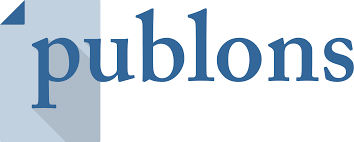Relationship of supplier development and proactive product recall with quality performance
Keywords:
Quality performance, Proactive product recall, Supplier development, Business performance, SPSS, Quantitative researchAbstract
A few manufacturers outsource their productions, making the assurance of the health and well-being of manufactured items more difficult. The limited capacity of existing regulatory bodies, the constant increase in bulk imports, and the complexity of global sourcing have caused severe quality performance problems in the supply chain. Therefore, the relationship between supplier development and proactive product recall with quality performance was examined. Quantitative variables were used in this research because of the nature of the topic. This study is explanatory and assumed based on established hypotheses. Supplier development and quality performance were analyzed using regression. The findings found that the two sorts of quality management practices that we studied in this research are proactive product recall and supplier development. Proactive product recall, if utilized appropriately, may alleviate the company's harmful effects as it is a cure activity that happens once a quality problem has occurred, or, in other words, it is a reactive approach.
References
Alchian, A. A., & Demsetz, H. (1972). Production, Information Costs, and Economic Organization. The American Economic Review, 62(5), 777–795. https://www.jstor.org/stable/1815199
Al-Tit, A. A. (2017). Factors affecting the organizational performance of manufacturing firms. International Journal of Engineering Business Management, 9, 184797901771262. https://doi.org/10.1177/1847979017712628
Baloch, N. & Rashid, A. (2022). Supply chain networks, complexity, and optimization in developing economies: a systematic literature review and meta-analysis. South Asian Journal of Operations and Logistics, 1(1), 1-13. https://doi.org/10.57044/SAJOL.2022.1.1.2202
Carr, A. S., & Kaynak, H. (2007). Communication methods, information sharing, supplier development and performance. International Journal of Operations & Production Management, 27(4), 346–370. https://doi.org/10.1108/01443570710736958
Carr, A. S., & Pearson, J. N. (1999). Strategically managed buyer-supplier relationships and performance outcomes. Journal of Operations Management, 17(5), 497–519. https://doi.org/10.1016/s0272-6963(99)00007-8
Chavez, P. J. A., & Seow, C. (2012). Managing Food Quality Risk in Global Supply Chain: A Risk Management Framework. International Journal of Engineering Business Management, 4, 3. https://doi.org/10.5772/46116
Cheah, E. T., Chan, W. L., & Chieng, C. L. L. (2007). The Corporate Social Responsibility of Pharmaceutical Product Recalls: An Empirical Examination of U.S. and U.K. Markets. Journal of Business Ethics, 76(4), 427–449. https://doi.org/10.1007/s10551-006-9292-1
Cole, R., & Aitken, J. (2019). Selecting suppliers for socially sustainable supply chain management:post-exchange supplier development activities as pre-selection requirements. Production Planning & Control, 30(14), 1184–1202. https://doi.org/10.1080/09537287.2019.1595208
Colicchia, C., & Strozzi, F. (2012). Supply chain risk management: a new methodology for a systematic literature review. Supply Chain Management: An International Journal, 17(4), 403–418. https://doi.org/10.1108/13598541211246558
Curkovic, S., Vickery, S., & Dröge, C. (2000). Quality-related Action Programs: Their Impact on Quality Performance and Firm Performance. Decision Sciences, 31(4), 885–902. https://doi.org/10.1111/j.1540-5915.2000.tb00947.x
Das, S., Ghani, M., Rashid, A., Rasheed, R., Manthar, S., & Ahmed, S. (2021). How customer satisfaction and loyalty can be affected by employee’s perceived emotional competence: The mediating role of rapport. International Journal of Management, 12(3), 1268-1277. https://doi.org/10.34218/IJM.12.3.2021.119
Dawar, N., & Pillutla, M. M. (2000). Impact of Product-Harm Crises on Brand Equity: The Moderating Role of Consumer Expectations. Journal of Marketing Research, 37(2), 215–226. https://doi.org/10.1509/jmkr.37.2.215.18729
Eisenhardt, K. M. (1989). Agency Theory: an Assessment and Review. The Academy of Management Review, 14(1), 57–74. https://doi.org/10.2307/258191
Fan, H., Li, G., Sun, H., & Cheng, T. C. E. (2017). An information processing perspective on supply chain risk management: Antecedents, mechanism, and consequences. International Journal of Production Economics, 185, 63–75. https://doi.org/10.1016/j.ijpe.2016.11.015
Finch, P. (2019). Supply chain risk management. Supply Chain Management: An International Journal, 9(2), 183–196. https://doi.org/10.1108/13598540410527079
Gray, J. V., Roth, A. V., & Leiblein, M. J. (2011). Quality risk in offshore manufacturing: Evidence from the pharmaceutical industry. Journal of Operations Management, 29(7), 737–752. https://doi.org/10.1016/j.jom.2011.06.004
Gunasekaran, A., Subramanian, N., & Ngai, W. T. E. (2019). Quality management in the 21st century enterprises: Research pathway towards Industry 4.0. International Journal of Production Economics, 207(1), 125–129. https://doi.org/10.1016/j.ijpe.2018.09.005
Hahn, C. K., Watts, C. A., & Kim, K. Y. (1990). The Supplier Development Program: A Conceptual Model. Journal of Purchasing and Materials Management, 26(2), 2–7. https://doi.org/10.1111/j.1745-493x.1990.tb00498.x
Haque, I., Rashid, A., & Ahmed, S. Z. (2021). The Role of Automobile Sector in Global Business: Case of Pakistan. Pakistan Journal of International Affairs, 4(2), 363-383. https://doi.org/10.52337/pjia.v4i2.195
Harland, C., Brenchley, R., & Walker, H. (2003). Risk in supply networks. Journal of Purchasing and Supply Management, 9(2), 51–62. https://doi.org/10.1016/s1478-4092(03)00004-9
Hashmi, A. (2022). Factors affecting the supply chain resilience and supply chain performance. South Asian Journal of Operations and Logistics, 1(2), 65-85. https://doi.org/10.57044/SAJOL.2022.1.2.2212
Hashmi, A. R., & Mohd, A. T. (2020). The effect of disruptive factors on inventory control as a mediator and organizational performance in health department of Punjab, Pakistan. International Journal of Sustainable Development & World Policy, 9(2), 122-134. https://doi.org/10.18488/journal.26.2020.92.122.134
Hashmi, R. (2023). Business Performance Through Government Policies, Green Purchasing, and Reverse Logistics: Business Performance and Green Supply Chain Practices. South Asian Journal of Operations and Logistics, 2(1), 1–10. https://doi.org/10.57044/SAJOL.2023.2.1.2301
Haunschild, P. R., & Rhee, M. (2004). The Role of Volition in Organizational Learning: The Case of Automotive Product Recalls. Management Science, 50(11), 1545–1560. https://doi.org/10.1287/mnsc.1040.0219
Hendricks, K. B., Singhal, V. R., & Zhang, R. (2008). The effect of operational slack, diversification, and vertical relatedness on the stock market reaction to supply chain disruptions. Journal of Operations Management, 27(3), 233–246. https://doi.org/10.1016/j.jom.2008.09.001
Jensen, M. C., & Meckling, W. H. (1976). Theory of the firm: Managerial behavior, Agency Costs and Ownership Structure. Journal of Financial Economics, 3(4), 305–360. https://doi.org/10.1016/0304-405X(76)90026-X
Kang, M., Wu, X., Hong, P., & Park, Y. (2012). Aligning organizational control practices with competitive outsourcing performance. Journal of Business Research, 65(8), 1195–1201. https://doi.org/10.1016/j.jbusres.2011.07.004
Kaynak, H. (2003). The relationship between total quality management practices and their effects on firm performance. Journal of Operations Management, 21(4), 405–435. https://doi.org/10.1016/s0272-6963(03)00004-4
Khan, S. K., Ahmed, S., & Rashid, A. (2021). Influence of social media on purchase intention and customer loyalty of generation Y with the mediating effect of conviction: a case of Pakistan. Pakistan Journal of International Affairs, 4(2), 526-548. https://doi.org/10.52337/pjia.v4i2.207
Khan, S. K., Rashid. A., Benhamed, A., Rasheed, R., & Huma, Z. (2023). Effect of leadership styles on employee performance by considering psychological capital as mediator: evidence from airlines industry in emerging economy. World Journal of Entrepreneurship, Management and Sustainable Development, 18(6), 799-818. https://doi.org/10.47556/J.WJEMSD.18.6.2022.7
Khan, S., Rasheed., R., Rashid, A., Abbas, Q., & Mahboob, F. (2022). The Effect of Demographic Characteristics on Job Performance: An Empirical Study from Pakistan. Journal of Asian Finance, Economics and Business, 9(2), 283-294. https://doi.org/10.13106/JAFEB.2022.VOL9.NO2.0283
Kim, K. K., Park, S.-H., Ryoo, S. Y., & Park, S. K. (2010). Inter-organizational cooperation in buyer–supplier relationships: Both perspectives. Journal of Business Research, 63(8), 863–869. https://doi.org/10.1016/j.jbusres.2009.04.028
Krause, D. R., Handfield, R. B., & Tyler, B. B. (2006). The relationships between supplier development, commitment, social capital accumulation and performance improvement. Journal of Operations Management, 25(2), 528–545. https://doi.org/10.1016/j.jom.2006.05.007
Kumar, S., & Budin, E. M. (2006). Prevention and management of product recalls in the processed food industry: a case study based on an exporter’s perspective. Technovation, 26(5-6), 739–750. https://doi.org/10.1016/j.technovation.2005.05.006
Kumar, S., & Schmitz, S. (2011). Managing recalls in a consumer product supply chain – root cause analysis and measures to mitigate risks. International Journal of Production Research, 49(1), 235–253. https://doi.org/10.1080/00207543.2010.508952
Li, S., Kang, M., & Haney, M. H. (2017). The effect of supplier development on outsourcing performance: the mediating roles of opportunism and flexibility. Production Planning & Control, 28(6-8), 599–609. https://doi.org/10.1080/09537287.2017.1309711
Luo, J., Zhang, C., Liu, R., Gao, L., Ou, S., Liu, L., & Peng, X. (2018). Ganoderma lucidum polysaccharide alleviating colorectal cancer by alteration of special gut bacteria and regulation of gene expression of colonic epithelial cells. Journal of Functional Foods, 47, 127–135. https://doi.org/10.1016/j.jff.2018.05.041
Magno, F. (2012). Managing Product Recalls: The Effects of Time, Responsible vs. Opportunistic Recall Management and Blame on Consumers’ Attitudes. Procedia - Social and Behavioral Sciences, 58, 1309–1315. https://doi.org/10.1016/j.sbspro.2012.09.1114
Narayanan, S., Narasimhan, R., & Schoenherr, T. (2014). Assessing the contingent effects of collaboration on agility performance in buyer-supplier relationships. Journal of Operations Management, 33-34(1), 140–154. https://doi.org/10.1016/j.jom.2014.11.004
Rasheed, R., & Rashid, R. (2023). Role of service quality factors in word of mouth through student satisfaction. Kybernetes, In press. http://dx.doi.org/10.1108/k-01-2023-0119
Rashid, A. & Rasheed, R. (2022). A Paradigm for Measuring Sustainable Performance Through Big Data Analytics–Artificial Intelligence in Manufacturing Firms. Available at SSRN 4087758. https://doi.org/10.2139/ssrn.4087758
Rashid, A. (2016). Impact of inventory management in downstream chains on customer satisfaction at manufacturing firms. International Journal of Management, IT and Engineering, 6(6), 1-19.
Rashid, A., & Rasheed, R. (2023). Mediation of inventory management in the relationship between knowledge and firm performance. SAGE Open, 13(2), 1-11. https://doi.org/10.1177/21582440231164593
Rashid, A., & Rasheed, R. (2024). Logistics Service Quality and Product Satisfaction. SAGE Open, In press. https://doi.org/10.1177/21582440231224250
Rashid, A., Rasheed, R., & Amirah, N. A. (2023). Information technology and people involvement in organizational performance through supply chain collaboration. Journal of Science and Technology Policy Management, In press. https://doi.org/10.1108/JSTPM-12-2022-0217
Rashid, A., Rasheed, R., & Ngah, A. H. (2024). Achieving Sustainability through Multifaceted Green Functions in Manufacturing. Journal of Global Operations and Strategic Sourcing, In press. https://doi.org/10.1108/JGOSS-06-2023-0054
Roth, A. V., Tsay, A. A., Pullman, M. E., & Gray, J. V. (2008). Unraveling the food supply chain: strategic insights from china and the 2007 recalls. The Journal of Supply Chain Management, 44(1), 22–39. https://doi.org/10.1111/j.1745-493x.2008.00043.x
Salimian, H., Rashidirad, M., & Soltani, E. (2017). A contingency view on the impact of supplier development on design and conformance quality performance. Production Planning & Control, 28(4), 310–320. https://doi.org/10.1080/09537287.2017.1282056
Tang, C. S. (2006). Perspectives in supply chain risk management. International Journal of Production Economics, 103(2), 451–488. https://doi.org/10.1016/j.ijpe.2005.12.006
Thun, J.-H., & Hoenig, D. (2011). An empirical analysis of supply chain risk management in the German automotive industry. International Journal of Production Economics, 131(1), 242–249. https://doi.org/10.1016/j.ijpe.2009.10.010
Tse, Y. K., Hua Tan, K., Ho Chung, S., & Kim Lim, M. (2011). Quality risk in global supply network. Journal of Manufacturing Technology Management, 22(8), 1002–1013. https://doi.org/10.1108/17410381111177458
Tse, Y. K., Zhang, M., Tan, K. H., Pawar, K., & Fernandes, K. (2019). Managing quality risk in supply chain to drive firm’s performance: The roles of control mechanisms. Journal of Business Research, 97, 291–303. https://doi.org/10.1016/j.jbusres.2018.01.029
Tummala, R., & Schoenherr, T. (2011). Assessing and managing risks using the Supply Chain Risk Management Process (SCRMP). Supply Chain Management: An International Journal, 16(6), 474–483. https://doi.org/10.1108/13598541111171165
Zhao, G., Pang, H., Liu, G., Li, P., Liu, H., Zhang, H., Shi, L., & Ye, J. (2017). Co-porphyrin/carbon nitride hybrids for improved photocatalytic CO2 reduction under visible light. Applied Catalysis B: Environmental, 200, 141–149. https://doi.org/10.1016/j.apcatb.2016.06.074
Zsidisin, G. A., & Ellram, L. M. (2003). An Agency Theory Investigation of Supply Risk M anagement. The Journal of Supply Chain Management, 39(3), 15–27. https://doi.org/10.1111/j.1745-493x.2003.tb00156.x
Zu, X., & Kaynak, H. (2012). An agency theory perspective on supply chain quality management. International Journal of Operations & Production Management, 32(4), 423–446. https://doi.org/10.1108/01443571211223086
Published
How to Cite
Issue
Section
Copyright (c) 2024 South Asian Journal of Operations and Logistics

This work is licensed under a Creative Commons Attribution 4.0 International License.









